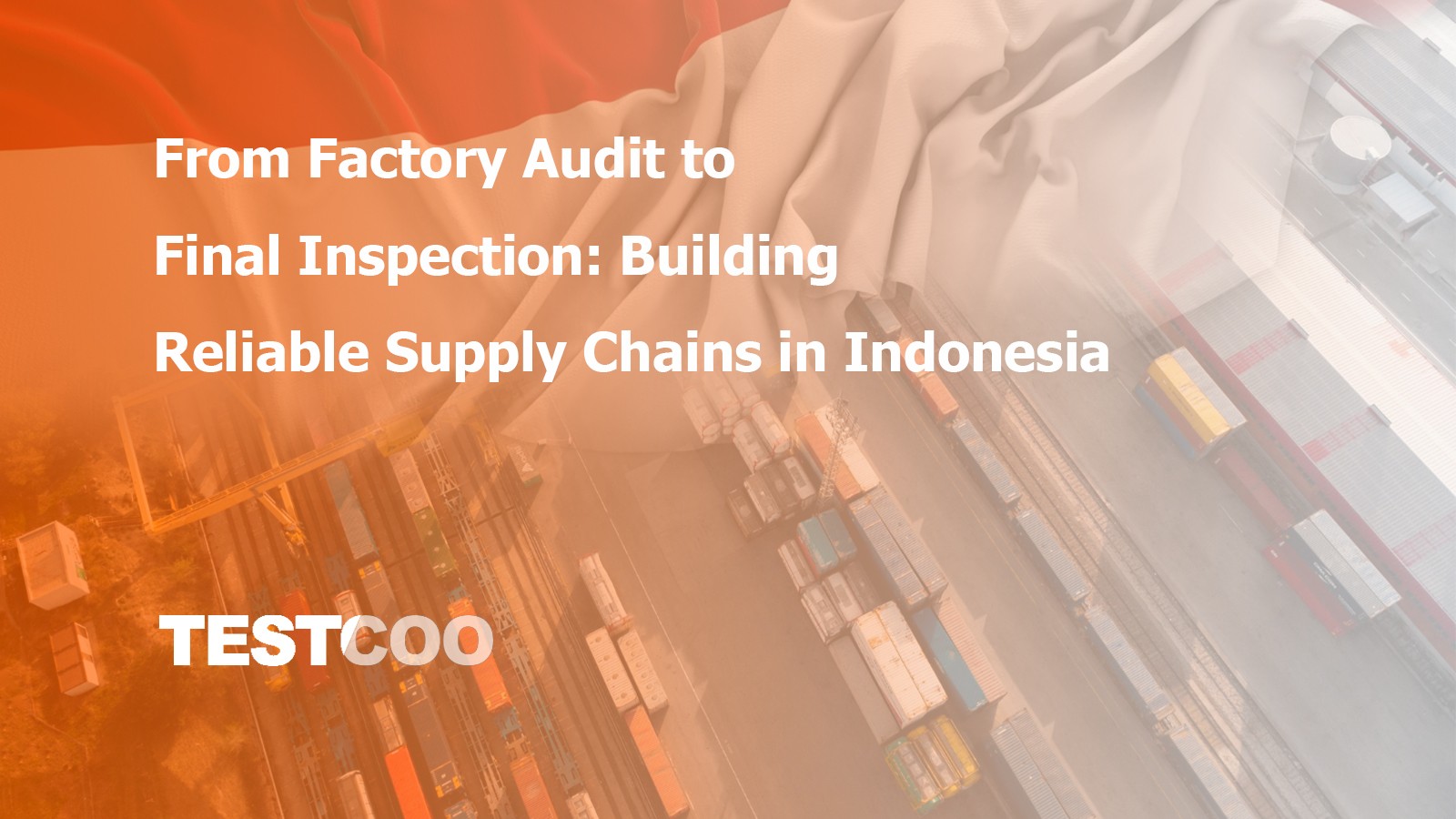SMETA Audits in India: A Guide to Ethical Compliance
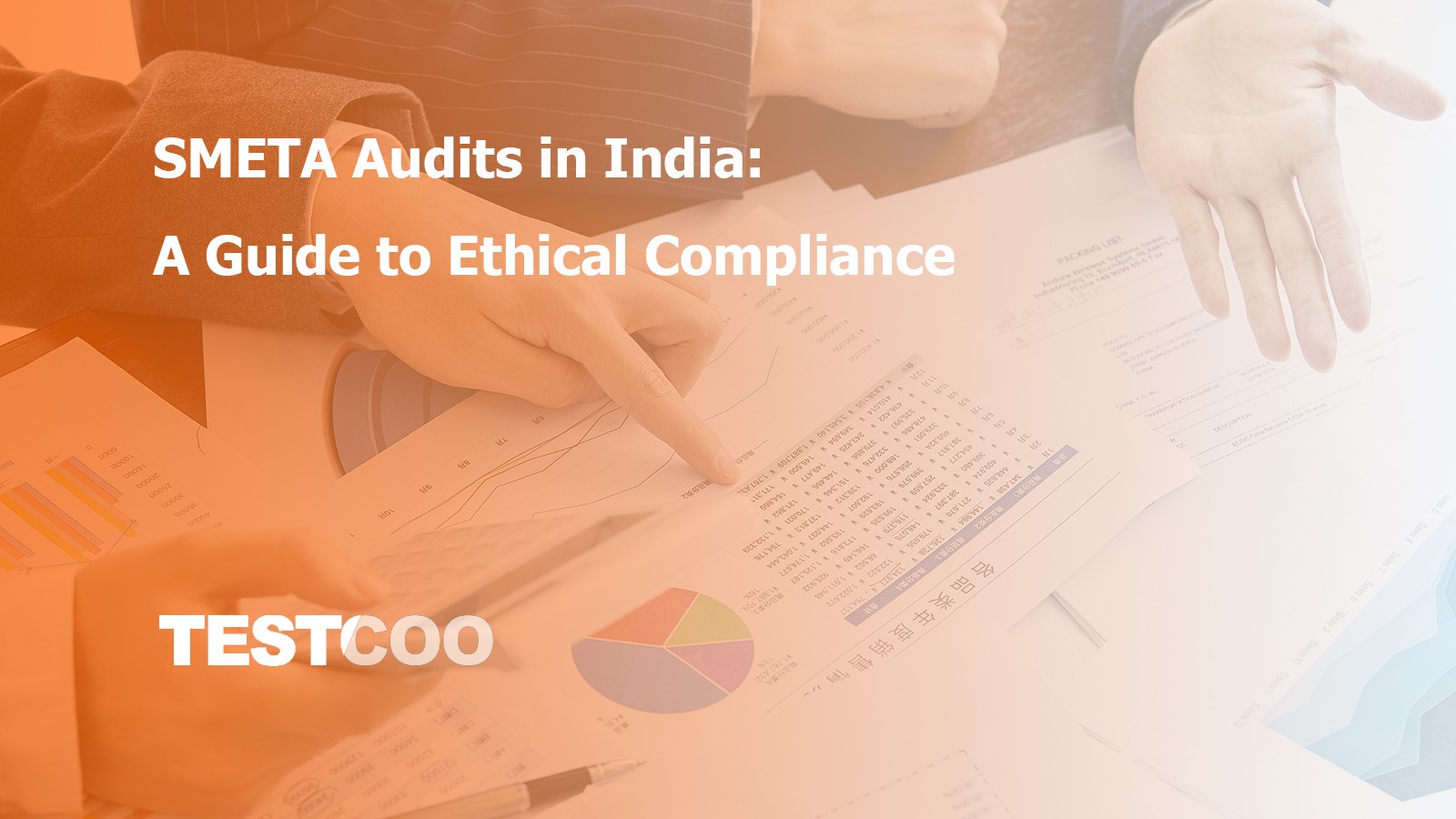
In today’s globalized supply chain, brands are under increasing pressure to ensure that their sourcing practices are ethical, transparent, and compliant with international standards. One of the most widely used social audit methodologies worldwide is SMETA (Sedex Members Ethical Trade Audit), and its relevance in India, a key manufacturing hub is steadily growing.
This blog provides a comprehensive guide to understanding SMETA audits in the Indian context, covering its structure, significance, challenges, and how Indian manufacturers and suppliers can prepare effectively.
What is a SMETA Audit?
A SMETA Audit is a globally recognized social auditing approach designed to evaluate ethical practices in the supply chain. Developed by Sedex (Supplier Ethical Data Exchange), it offers a standardized framework to assess labor conditions, health and safety, environmental impact, and business ethics at manufacturing facilities. Unlike traditional certifications, SMETA is a methodology that guides how audits should be conducted, rather than offering a formal certificate. Its goal is to help businesses and their suppliers demonstrate social responsibility, identify areas for improvement, and build trust with global buyers who increasingly demand ethical compliance from their sourcing partners. It is designed to assess a company’s practices across four key pillars:
- Labour Standards
- Health and Safety
- Environment
- Business Ethics
SMETA enables businesses to evaluate working conditions within their supply chains and demonstrate a commitment to responsible sourcing. The audit can be 2-pillar (Labour + Health & Safety) or 4-pillar (includes Environment and Business Ethics).
Supply Chain Assessment: Why Should You Care About Social Compliance Policy?
Why SMETA Matters in India
India is a critical player in global manufacturing, supplying everything from textiles and garments to electronics, home furnishings, and automotive parts. While the country offers cost efficiency and skilled labor, it also faces ethical and regulatory challenges, including:
- Informal labor practices
- Inconsistent wage compliance
- Long working hours
- Occupational safety issues
- Gaps in documentation and social security
In this environment, SMETA audits help bridge the gap between global buyer expectations and local operational realities. For Indian exporters and suppliers, passing a SMETA audit can enhance market access, build buyer confidence, and improve internal systems.
Key Elements of a SMETA Audit
When a global apparel brand places an order with an Indian factory, it’s not just product quality that matters, it’s also how ethically those products are made. This is where a SMETA audit steps in, acting as a lens into the factory’s working conditions and business practices. The following key elements form a comprehensive picture of the factory’s commitment to ethical sourcing ensuring not just compliance, but trust and transparency across the supply chain.
1. Labour Standards
This pillar evaluates compliance with local labor laws and international standards like ILO conventions. Areas of focus include:
- Wages and benefits
- Working hours
- Employment contracts
- Discrimination
- Child labor
- Freedom of association
In India, common non-compliances often involve minimum wage discrepancies, lack of formal contracts, and excessive working hours during peak seasons.
2. Health and Safety
Auditors check for:
- Safe working conditions
- Emergency preparedness
- Machine safety
- Personal protective equipment (PPE)
- Health and hygiene facilities
Indian factories, especially small and medium-sized enterprises (SMEs), may lack investment in infrastructure and training, leading to safety violations.
3. Environment (Optional in 2-pillar; mandatory in 4-pillar)
This evaluates the company’s environmental management practices such as:
- Waste management
- Use of hazardous substances
- Energy and water usage
- Pollution control
With increasing focus on sustainability, many buyers now require the 4-pillar audit.
4. Business Ethics
This checks for transparency in business dealings, including:
- Bribery and corruption policies
- Anti-competitive practices
- Whistleblower protections
Indian companies often need support in formalizing ethics policies and ensuring staff awareness.
Understand the Key Changes in SMETA 7.0: What’s New and What's changed?

SMETA in India: Common Audit Challenges
In India, preparing for a SMETA audit often uncovers deep-rooted challenges in manufacturing units—from informal labor practices and incomplete documentation to outdated safety measures and limited worker awareness. Many factories, especially small to mid-sized ones, operate with minimal systems in place, making it difficult to meet the stringent requirements of a 2- or 4-pillar audit. Cultural barriers, varying interpretations of labor laws, and lack of structured training further complicate compliance. Understanding these common hurdles is essential for suppliers aiming to align with global ethical standards and build lasting partnerships with international buyers. Despite the benefits, undergoing a SMETA audit can be challenging in India due to several ground realities:
Informal Labor - A large proportion of India’s workforce is unorganized. Many workers may not have contracts, ID cards, or access to social security schemes like ESIC or PF.
Wage and Overtime Issues - Factories sometimes struggle to meet wage compliance due to state-wise variations in minimum wage rates and record-keeping errors. Unpaid or underpaid overtime is another common finding.
Documentation Gaps - SMETA requires extensive documentation—from policies and training records to wage slips and attendance logs. Smaller factories may find this overwhelming.
Facility Infrastructure - Health and safety compliance can be affected by outdated equipment, lack of fire exits, or inadequate first aid facilities.
Lack of Awareness - Factory management and workers may not fully understand the audit’s purpose, leading to miscommunication or resistance during interviews.
How to Prepare for a SMETA Audit in India
Preparing for a SMETA audit in India requires a structured approach that goes beyond surface-level compliance. Manufacturers must start by understanding the audit scope—2-pillar or 4-pillar—and conducting an internal gap analysis. Clear documentation of wages, working hours, health and safety practices, and ethical policies is critical. Worker awareness and training play a key role, as interviews form a core part of the audit. Engaging all departments—HR, production, compliance—ensures alignment. With proper planning, record-keeping, and transparent communication, Indian suppliers can not only meet SMETA standards but also build stronger systems for long-term ethical compliance. Success in a SMETA audit starts with awareness, preparation, and consistency. Here’s a roadmap for Indian suppliers:
1. Understand the Audit Scope
Decide whether you need a 2-pillar or 4-pillar audit. Check with your buyer what they require. Familiarize yourself with the SMETA audit checklist and Sedex guidelines.
2. Conduct an Internal Gap Assessment
Before the audit, perform an internal review or hire a pre-audit assessment team. This helps identify red flags related to:
- HR practices
- Payroll and timekeeping
- Worker grievances
- Health & safety measures
3. Strengthen Documentation
Ensure that key documents are available, up to date, and easy to retrieve, such as:
- Employee contracts
- Wage registers
- Attendance sheets
- Policy documents (e.g., anti-harassment, environmental policy)
- Training records
4. Train Your Teams
Train HR, admin, and supervisors on:
- Audit protocols
- How to handle interviews
- Explaining policies clearly to auditors and workers
- Emergency procedures and safety drills
5. Improve Worker Communication
Workers will be interviewed during the audit. It's vital they understand their rights, know who to contact for grievances, and are aware of company policies.
6. Engage a Trusted Third-Party Audit Partner
Collaborating with an experienced third-party service provider like Testcoo ensures you get expert guidance, clear communication, and unbiased results that align with buyer expectations.
Selecting the Right Social Compliance Standard: Amfori - BSCI, SA8000, SEDEX SMETA, RBA, WRAP

Benefits of Passing a SMETA Audit in India
For many Indian manufacturers, passing a SMETA audit is more than just ticking a compliance box—it's a gateway to global growth. Successfully completing the audit signals to international buyers that your factory meets high standards in labor rights, safety, and ethical practices. This not only builds trust but opens doors to long-term partnerships, larger orders, and entry into premium markets. Additionally, the audit process helps streamline internal systems, improve worker satisfaction, and enhance brand reputation. In a competitive sourcing environment, SMETA compliance is a powerful differentiator that positions Indian suppliers as reliable, responsible, and future-ready. A successful SMETA audit can unlock numerous advantages for Indian suppliers and manufacturers:
1. Better Access to Global Buyers
Most international retailers (especially UK- and EU-based brands) require SMETA compliance to onboard new vendors.
2. Improved Internal Systems
Going through the audit process helps companies identify inefficiencies and formalize operations.
3. Stronger Brand Reputation
Ethical compliance enhances a company's image in the global supply chain, giving it an edge in competitive sourcing environments.
4. Long-Term Business Partnerships
Consistent audit performance builds buyer confidence, paving the way for long-term orders and strategic relationships.
The Role of Testcoo in Supporting SMETA Audits
At Testcoo , we understand the nuances of SMETA audits in the Indian manufacturing landscape. Our audit services are designed to:
- Ensure objective, accurate assessments
- Help suppliers identify and fix compliance gaps
- Provide clear guidance on industry best practices
- Offer pre-audit and post-audit support to help facilities continuously improve
With a presence in over 30 countries and deep experience across industries like apparel , electronics , furniture , toys and more, Testcoo is your trusted partner for ethical sourcing and supply chain transparency.
As global supply chains become more accountable, SMETA audits in India are no longer a “nice-to-have”, they're a must-have. Brands and buyers want assurance that the products they source are made in conditions that respect labor rights, uphold safety, and follow ethical business practices.
For Indian manufacturers, being SMETA-ready not only ensures compliance but also signals a commitment to responsible growth. With the right preparation and expert guidance, a SMETA audit becomes a strategic tool for global competitiveness, not a hurdle.
Are you Ready to prepare for your SMETA audit in India?
Let Testcoo help you navigate the process with confidence. Contact us at service@testcoo.com or visit our website .
Free Sample Report Performance Quality Control
Download a sample report to keep control of your supply chain!
Featured Articles
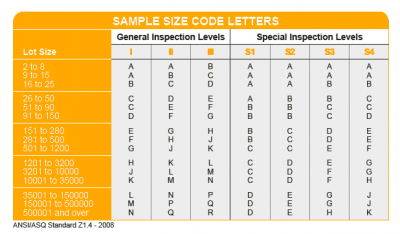 AQL Table | How to Read It
AQL Table | How to Read It TOP 10 Common Defects in Garments Quality Inspection
TOP 10 Common Defects in Garments Quality Inspection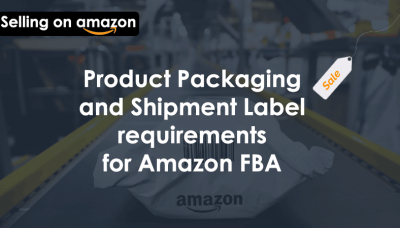 Product Packaging and Shipment Label requirements for Amazon FBA
Product Packaging and Shipment Label requirements for Amazon FBA What Is ASTM-F2413-18? Protective Footwear Standard
What Is ASTM-F2413-18? Protective Footwear Standard How to Conduct Third-Party Quality Control Inspections for Electric Scooters
How to Conduct Third-Party Quality Control Inspections for Electric Scooters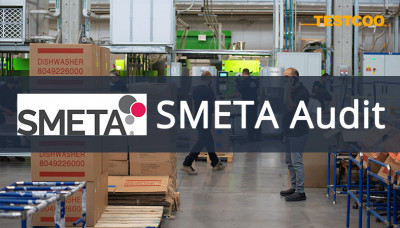 SMETA Audit-What is SMETA Audit?
SMETA Audit-What is SMETA Audit?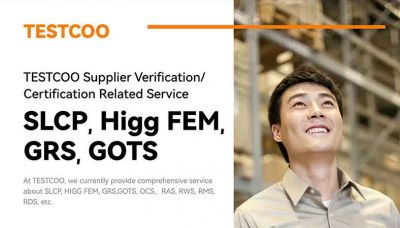 TESTCOO Supplier Verification/Certification Service SLCP, Higg FEM, GRS, GOTS
TESTCOO Supplier Verification/Certification Service SLCP, Higg FEM, GRS, GOTS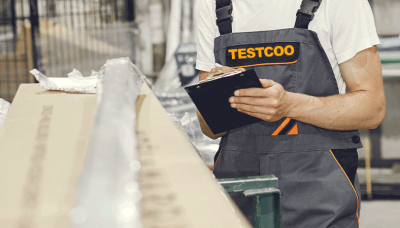 Quality Control Inspection Company in China
Quality Control Inspection Company in China What is Quality Inspection? A Complete Guide
What is Quality Inspection? A Complete Guide Guidelines for Product Inspection in India
Guidelines for Product Inspection in India
Category
- Production Inspection Service
- Factory Audit
- Softline Inspection
- Hardline Inspection
- Electrics Inspection
- Certification
- Checklist
- Manufacturers
- Quality Assurance Basics
- Products Recall
- AQL
- Guidence and Standard
- News
- Supplier Management
- Amazon
- Protective Equipment
- e-commerce quality control
- Indian Manufacturing
- Soft Goods Quality Control
- Supply Chain Management
- Supply Chain Resilience
- E-Commerce Quality Control
- ISO 2859
- Supply Chain Optimization
- Garment Industry
- Higg Index

